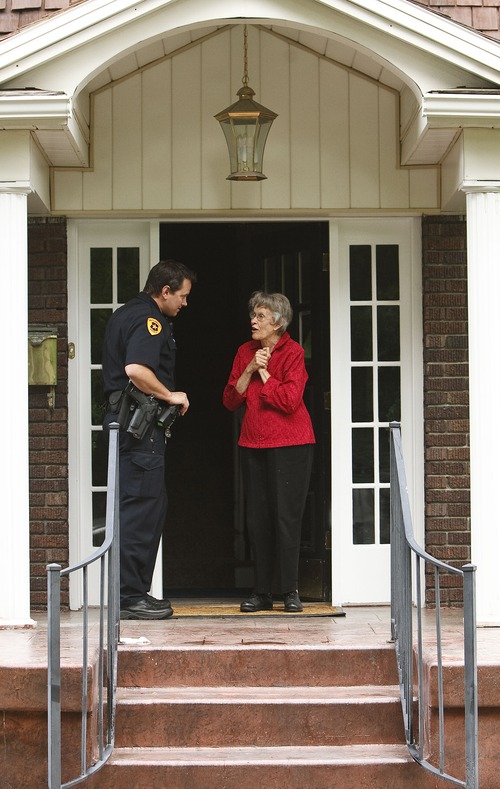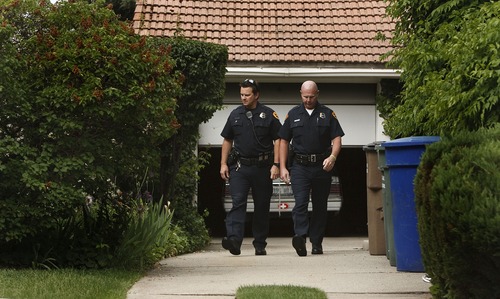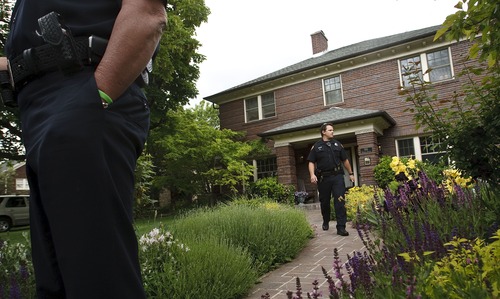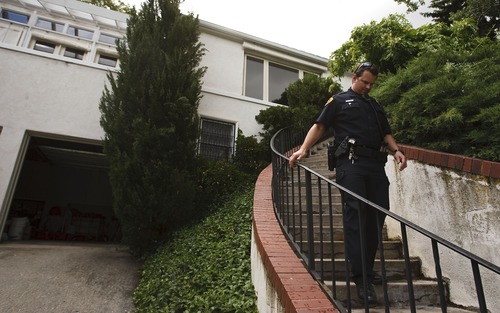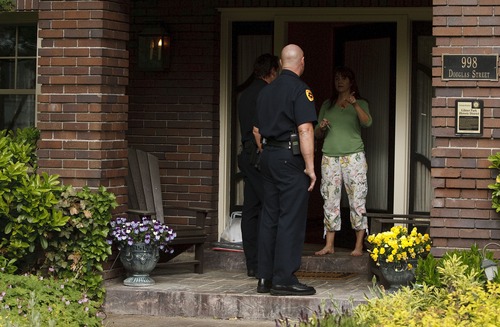This is an archived article that was published on sltrib.com in 2013, and information in the article may be outdated. It is provided only for personal research purposes and may not be reprinted.
Michael Cohn knows the difference a mindful neighborhood can make.
Crime has dipped in East Liberty Park lately, thanks in part to the arrests of several suspected burglars. But Cohn knows it is only a matter of time before other burglars fill the void.
The co-chairman of the neighborhood's community council looks west to his neighbors in Liberty Wells keeping their crime statistics routinely lower — unlike East Liberty Park, they have a well-established neighborhood watch group. The area's assigned detective regularly compares the two as an example of a watch group's impact.
Though neighborhood watch groups have come under scrutiny during the George Zimmerman trial, violent situations such as that one are a rarity in the state, even though Utah has essentially the same stand-your-ground law as Florida. Police and neighbors point out how the groups unite communities and protect them from crime.
"This is not a confrontational program. This is not about night patrols," Cohn said. "It's just watching and looking … so that people are aware of what's going on in our neighborhood."
—
A watchful eye • Salt Lake City Police Detective Rick Wall, who has overseen the neighborhood watch program for the past six years, pointed out that there are hundreds of neighborhood watch groups in the city, made up of almost 6,000 people who get involved without any significant problems.
"The results are phenomenal. I see that time and time and time again," Wall said. "Once they take a stand and are not going to tolerate any more, I see it over and over that crime is greatly reduced."
Property crime has declined 25 percent in the past two months compared to March and April in East Liberty Park, according to self-reported statistics on the department's website, even though such crimes normally rise with the summer temperatures. Besides the suspected burglar arrests, officers went door to door at the end of May reminding people to lock their doors and windows, close their garages and secure all the belongings in their yards.
That kind of mindfulness and communication — ideally, neighbors would be reminding neighbors — are core to the watch program.
The department's pamphlet on neighborhood watch emphasizes that participants "are not vigilantes. They are extra eyes and ears for reporting crime and helping neighbors."
Even the masked superhero team Black Monday Society — which is not a sanctioned watch group — are careful not to come to blows with anyone during bimonthly downtown patrols. The society's members instead use their startling appearances to defuse confrontations.
Wall expects that any citizen, including a neighborhood watch member, remains safe and reports a possible crime in progress to the police over the phone.
Cohn knows that he has no right to tell anyone not to carry a concealed weapon, nor can he say for certain no one would, but he plans a low-key approach to neighborhood watch.
—
Stand-your-ground law • The controversy surrounding the death of 17-year-old Trayvon Martin has cast a cloud over neighborhood watch's reputation.
Neighborhood watch, and stand-your-ground laws that allow for citizens to use deadly force against perceived threats, have turned into much-discussed points of controversy with the killing of Martin in central Florida. Attorney General Eric Holder has called for such laws to be reassessed.
"Separate and apart from the case that has drawn the nation's attention, it's time to question laws that senselessly expand the concept of self-defense and sow dangerous conflict in our neighborhoods," Holder said Tuesday.
The Utah law has been on the books since 1994. Mitch Vilos, a defense attorney and gun advocate, said last year that he can't recall an instance when Utah's stand-your-ground law has been used as a defense.
What concerns University of Utah law professor Cliff Rosky is the culture created by a 2010 amendment to that law.
Then-Rep. Stephen Sandstrom, R-Orem, sponsored a change to the law that allows people to announce they have a weapon or draw their gun if they had a reasonable fear for their safety or life. People might feel emboldened to use the allowance, Rosky said, calling it dangerous.
"Homicides often occur when people have been drinking and they've got a gun. Fights often occur in those settings as well," Rosky said. "When the law authorizes one person to escalate a conflict, non-deadly into a deadly conflict … If someone is going to punch you and you show them your gun, now can they use their gun? Will they?"
But Sandstrom defends the amendment, which he patterned after the Florida law.
"I still firmly believe that the law is warranted and necessary if exercised with good judgment and prudence," he said, adding that people have to take the use of force "very seriously."
Neighborhood watch programs also came up when, in 2009, Bluffdale resident Reginald Campos shot and paralyzed David Serbeck because he believed Serbeck and another man were stalking his daughter. Serbeck had been following the girl's car because he thought it was suspicious. Neither man was part of a sanctioned neighborhood watch group, though both had advocated for starting the program in the area.
Campos was sentenced to life in prison.
—
A helpful hand •But anomalies make the news for being anomalies.
"Neighborhood watch is a really great program. It's raising people's awareness level and [encourages them to] watch out for one another," Wall said. "It brings people together, communities together so that they essentially talk with one another. In today's day and age, we get so busy we don't talk with our neighbors; we don't know much about them."
Cohn hopes that by organizing a watch program along the same lines that the Federal Emergency Management Agency structures its people, his neighborhood will already be set up for a quick and efficient response to any situation, such as a severe earthquake.
"It provides a forum to facilitate communication," Cohn said. "There are endless opportunities for a community to improve itself."
More information on neighborhood watch programs in Salt Lake City is available at slcpd.com/neighborhoodwatch.
The Associated Press contributed to this story.
Twitter: @mikeypanda —
Protecting your home from burglars
Windows • Use good window locks. Most criminals won't break windows because of the loud noise it causes.
Doors • Keep your doors locked even when you're home.
House numbers • Make sure house numbers are easily visible to help responders locate your residence.
Exterior lights • Good lighting reduces risk. Consider installing motion detectors or sensors.
Garages • Always keep closed and locked when at home.
Shrubs • If they're overgrown, criminals might use them to hide or cover their activity. Keep trimmed back from doors and windows.


